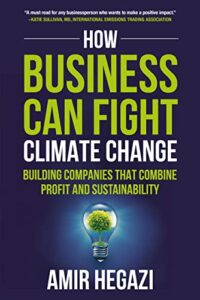In this Forbes article published on May 4, 2022, Ken Silverstein captures the argument for climate capitalism made by Roger Ballentine during the recent Green Builder Media Sustainability Symposium.
Silverstein begins with the premise that now is the time to align profit-seekers with climate-friendly business. Companies who do not do this will be “sidelined.”
“Climate is a business issue. Like any other, it should be proactively incorporated into a business strategy. That means mitigating new risks and adding value,” says Ballentine. “The capital markets are asking an increasing number of questions. When your largest institutional shareholders seek better answers, that moves the needle. It is central to creating value. The SEC proposal could put climate capitalism on steroids.”
The upcoming SEC rule on climate disclosure will solidify this trend. Markets are already rewarding climate-conscious corporate leaders lessening dependence on fossil fuels and mitigating physical and transition risks.
“Climate change is not waiting for political change,” says Ballentine, who also served as Chairman of the White House Climate Change Task Force under President Clinton. “Any company that is not managing these risks will lose to companies that are.”
…
Ballentine emphasizes that environmental causes and corporate profits are linked. The SEC is merely the catalyst that will unleash the profit motive on climate change — a rulemaking that must wend its way through the comment period and the eventual bevy of lawsuits it will face.
Silverstein provides the case of major companies capitalizing on the shift to the clean energy economy, including power generator Xcel Energy, and consumer-facing brands like Apple which already reports its climate risks.
Silverstein summarizes the argument like this: “the transition to a low-carbon economy is a multi-trillion dollar opportunity.”
Check out the full article as it originally appears in Forbes.
Preview image source: USDA Forest Service via Wikipedia, 2013.





